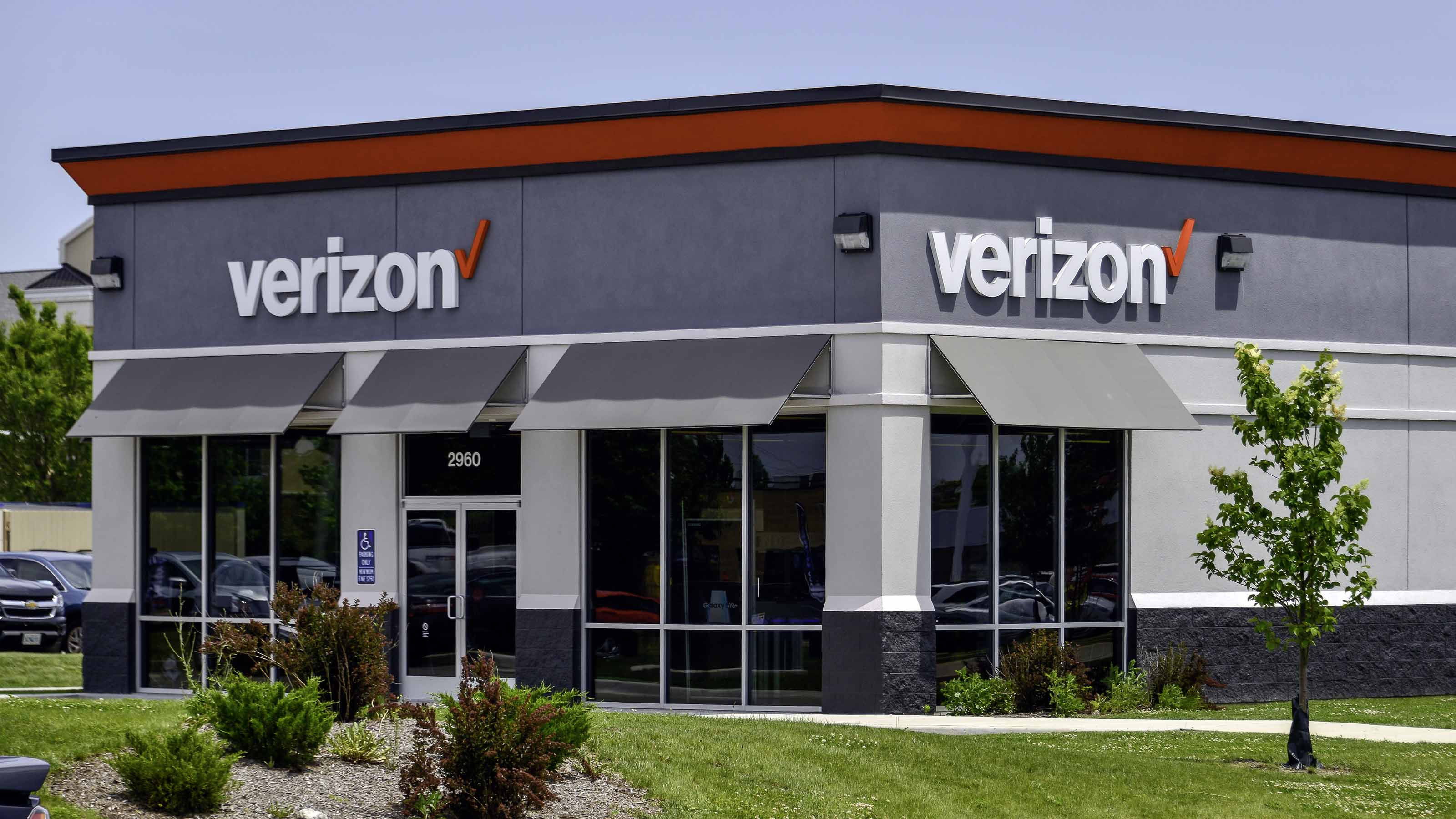The Verizon Administrative Settlement Payment is a Reminder Class-Action Lawsuits Won't Make You Rich
People are receiving payouts from the Verizon administrative settlement and are surprised at how small they are.


Profit and prosper with the best of Kiplinger's advice on investing, taxes, retirement, personal finance and much more. Delivered daily. Enter your email in the box and click Sign Me Up.
You are now subscribed
Your newsletter sign-up was successful
Want to add more newsletters?

Delivered daily
Kiplinger Today
Profit and prosper with the best of Kiplinger's advice on investing, taxes, retirement, personal finance and much more delivered daily. Smart money moves start here.

Sent five days a week
Kiplinger A Step Ahead
Get practical help to make better financial decisions in your everyday life, from spending to savings on top deals.

Delivered daily
Kiplinger Closing Bell
Get today's biggest financial and investing headlines delivered to your inbox every day the U.S. stock market is open.

Sent twice a week
Kiplinger Adviser Intel
Financial pros across the country share best practices and fresh tactics to preserve and grow your wealth.

Delivered weekly
Kiplinger Tax Tips
Trim your federal and state tax bills with practical tax-planning and tax-cutting strategies.

Sent twice a week
Kiplinger Retirement Tips
Your twice-a-week guide to planning and enjoying a financially secure and richly rewarding retirement

Sent bimonthly.
Kiplinger Adviser Angle
Insights for advisers, wealth managers and other financial professionals.

Sent twice a week
Kiplinger Investing Weekly
Your twice-a-week roundup of promising stocks, funds, companies and industries you should consider, ones you should avoid, and why.

Sent weekly for six weeks
Kiplinger Invest for Retirement
Your step-by-step six-part series on how to invest for retirement, from devising a successful strategy to exactly which investments to choose.
This week, people started receiving payouts from a Verizon administrative fee settlement. This was the result of a $100 million class-action settlement over a monthly administrative charge.
When information about the settlement first came out last year, we heard eligible customers would receive at least $15 and up to $100 from it, depending on how long you were a Verizon customer and how many people joined the settlement. And as the payouts started rolling in this week, it became clear that $100 check was more of a pipe-dream.
"Got my Verizon settlement check today. Thanks, lawyers," one person wrote on the "mildly infuriating" Reddit community, alongside a screenshot of a $7.85 payment. "I got $9.03. Off to buy half a dozen eggs!" another person responded.
From just $107.88 $24.99 for Kiplinger Personal Finance
Become a smarter, better informed investor. Subscribe from just $107.88 $24.99, plus get up to 4 Special Issues

Sign up for Kiplinger’s Free Newsletters
Profit and prosper with the best of expert advice on investing, taxes, retirement, personal finance and more - straight to your e-mail.
Profit and prosper with the best of expert advice - straight to your e-mail.
Over here at Kiplinger, staff members who received payouts received them in the $7 to $11 range. So, what happened with the settlement, and what does it mean?
Why were the Verizon administrative settlement payments so low?
As mentioned, the $100 million settlement suggested people would get at least $15, and more depending on how long they'd been customers. People were eligible if they were a Verizon post-paid subscriber charged a monthly administrative fee between January 2016 and November 2023.
Eligible customers could submit a claim online through a settlement site and had to file a claim by April 15, 2024 — so, no, you can no longer submit a claim for this Verizon settlement.
Why were the payments below $15? It's right there on the claim form (emphasis mine):
"Your Settlement Payment may be up to $100.00 for your Verizon account, but the final amount may be lower depending on how long you were a Verizon subscriber and how many Settlement Class Members file valid claims. [...] If the Settlement Fund is not sufficient to pay all the filed valid claims after deducting any Court-approved amounts for the cost of settlement administration, attorneys’ fees and costs, and incentive awards to the class representatives, then the payments made to the Settlement Class Members who filed valid claims will be decreased from the initial allocated amount on a pro-rata basis."
In other words, if a ton of eligible people submitted claims and if things like attorney fees were high enough, payout amounts would be lower than $15. Clearly, some mixture of that is what ended up happening here.
Class-action lawsuits won't make you rich
A key point to remember about class-action lawsuits is that the payout amount to each individual typically relates to how many eligible people submit a claim. So, the more customers a company has or the more widespread word gets about a settlement, the lower the payout amounts you can typically expect.
This Verizon situation serves as a good reminder that class-action lawsuits won't make you rich. You're also probably not going to win the lottery, you shouldn't count on an inheritance for your retirement plan, and that one penny stock a friend suggested won't necessarily go to the moon if you put all your savings into it.
Often, people look for tricks and loopholes that'll suddenly make them a millionaire. Unfortunately, however, for most people, making a fortune is much more boring.
If you want to passively make money, you need patience, but there are tried-and-true ways. You can, for example, invest in the best ETFs to buy now or, if you're more risk-averse, put your money into one of the best high-yield savings accounts. Use good budgeting apps to track your spending and make sure you're making smart choices, like checking out Verizon deals before you upgrade your phone. Or how about this for surprise money: Open a 401(k), invest that in a low-cost index fund, and don't look at it for 15 years?
But if you really believe settlement payouts are the way to go, I hear Apple just proposed a $95 million settlement. Good luck!
Related Content
Profit and prosper with the best of Kiplinger's advice on investing, taxes, retirement, personal finance and much more. Delivered daily. Enter your email in the box and click Sign Me Up.

Alexandra Svokos is the digital managing editor of Kiplinger. She holds an MBA from NYU Stern in finance and management and a BA in economics and creative writing from Columbia University. Alexandra has over a decade of experience in journalism and previously served as the senior editor of digital for ABC News, where she directed daily news coverage across topics through major events of the early 2020s for the network's website, including stock market trends, the remote and return-to-work revolutions, and the national economy. Before that, she pioneered politics and election coverage for Elite Daily and went on to serve as the senior news editor for that group.
Alexandra was recognized with an "Up & Comer" award at the 2018 Folio: Top Women in Media awards, and she was asked twice by the Nieman Journalism Lab to contribute to their annual journalism predictions feature. She has also been asked to speak on panels and give presentations on the future of media and on business and media, including by the Center for Communication and Twipe.
-
 Quiz: Do You Know How to Avoid the "Medigap Trap?"
Quiz: Do You Know How to Avoid the "Medigap Trap?"Quiz Test your basic knowledge of the "Medigap Trap" in our quick quiz.
-
 5 Top Tax-Efficient Mutual Funds for Smarter Investing
5 Top Tax-Efficient Mutual Funds for Smarter InvestingMutual funds are many things, but "tax-friendly" usually isn't one of them. These are the exceptions.
-
 AI Sparks Existential Crisis for Software Stocks
AI Sparks Existential Crisis for Software StocksThe Kiplinger Letter Fears that SaaS subscription software could be rendered obsolete by artificial intelligence make investors jittery.
-
 One of the Most Powerful Wealth-Building Moves a Woman Can Make: A Midcareer Pivot
One of the Most Powerful Wealth-Building Moves a Woman Can Make: A Midcareer PivotIf it feels like you can't sustain what you're doing for the next 20 years, it's time for an honest look at what's draining you and what energizes you.
-
 I'm a Wealth Adviser Obsessed With Mahjong: Here Are 8 Ways It Can Teach Us How to Manage Our Money
I'm a Wealth Adviser Obsessed With Mahjong: Here Are 8 Ways It Can Teach Us How to Manage Our MoneyThis increasingly popular Chinese game can teach us not only how to help manage our money but also how important it is to connect with other people.
-
 Looking for a Financial Book That Won't Put Your Young Adult to Sleep? This One Makes 'Cents'
Looking for a Financial Book That Won't Put Your Young Adult to Sleep? This One Makes 'Cents'"Wealth Your Way" by Cosmo DeStefano offers a highly accessible guide for young adults and their parents on building wealth through simple, consistent habits.
-
 My Spouse and I Are Saving Money for a Down Payment on a House. Which Savings Account is the Best Way to Reach Our Goal?
My Spouse and I Are Saving Money for a Down Payment on a House. Which Savings Account is the Best Way to Reach Our Goal?Learn how timing matters when it comes to choosing the right account.
-
 We're 78 and Want to Use Our 2026 RMD to Treat Our Kids and Grandkids to a Vacation. How Should We Approach This?
We're 78 and Want to Use Our 2026 RMD to Treat Our Kids and Grandkids to a Vacation. How Should We Approach This?An extended family vacation can be a fun and bonding experience if planned well. Here are tips from travel experts.
-
 My First $1 Million: Retired From Real Estate, 75, San Francisco
My First $1 Million: Retired From Real Estate, 75, San FranciscoEver wonder how someone who's made a million dollars or more did it? Kiplinger's My First $1 Million series uncovers the answers.
-
 To Love, Honor and Make Financial Decisions as Equal Partners
To Love, Honor and Make Financial Decisions as Equal PartnersEnsuring both partners are engaged in financial decisions isn't just about fairness — it's a risk-management strategy that protects against costly crises.
-
 Top 5 Career Lessons From the 2026 Winter Olympics (So Far)
Top 5 Career Lessons From the 2026 Winter Olympics (So Far)Five lessons to learn from the 2026 Winter Olympics for your career and finances.